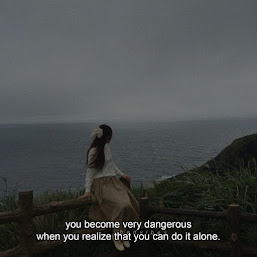World Kidney Day (WKD) is a global health awareness campaign focusing on the importance of the kidneys and reducing the frequency and impact of kidney disease and its associated health problems worldwide. It is observed annually on the 2nd Thursday in March. WKD is a joint initiative of the International Society of Nephrology (ISN) and the International Federation of Kidney Foundations (IFKF). This holiday was intended to raise awareness about conditions of the kidney; although Many are treatable, they are a secondary medical concern of the greater population. The objective of celebrating the event is to spread awareness about the increasing number of people contracting kidney disease across the world. The day highlights the need for the strategies for prevention and management of Kidney disease. It also encourages people to opt for regular screening and make changes for a healthy lifestyle.
The celebration of World's Kidney Day was first started by the joint committee of the International Society of Nephrology and the International Federation of Kidney Foundation. Every year, health organizations celebrate the day to help people to prevent kidney diseases and also inform them to take precautions for a healthy lifestyle. They organize campaigns to spread messages about kidney disease, its prevention, and its cure. The Theme of 2021 World Kidney Day is "Living well with Kidney Disease" with the goal of patient empowerment and life participation
Kidneys are our body's vital organs which filter the blood and help in passing waste as urine. According to experts, 1 out of 10 people worldwide has one kidney issue or the other and if left untreated it could turn out deadly. The cause of kidney diseases most especially in this environment is hypertension followed by Diabetic Mellitus; It is a particular condition where the body fights against the kidney due to prior exposure to a harmful substances in past( chronic glomerulonephritis). Westernization of the diet of our lifestyle has greatly impacted the anonymously of this disease. We have a lot of medications: we can show the advocacy of the drugs but we're not sure of the safety of these drugs or bleaching products. Many of these drugs when taken passes through the kidney on their way out which harms the Kidney. The use of painkillers, prolonged use of nostalgia, inflammatory drugs are the major culprit. Artificial condiments; fish powder, pepper, soup powder are used to make food sweet but prolonged intake of these items is strongly linked with kidney disease.
The unfortunate thing about chronic kidney disease is that the symptoms don't manifest until very late in the course of illness. You could have more than 70-80% of your kidney function lost before it starts manifesting to it. The major failures are shown through the symptoms of the swollen leg, foamy urine indicating kidney injury on its own, swollen face, elevated blood pressure, and the individual will feel tired most of the time because of anemia. The community obstacles to better kidney health understanding include the complex nature of kidney disease information, low baseline awareness, limited health literacy, limited availability of CKD information, and lack of readiness to learn.
 |
| Ani Choying Dolma took part in a kidney walk at Basantapur to raise awareness for kidney-related problems on the occasion of World Kidney Day. |
All over the world, the purpose of the celebration is to bring awareness to the role that our kidney plays in our health and to bring points that kidney disease is common; to enlighten to make them get that the awareness at an early stage can help the patient. Detecting kidney disease is inexpensive; Urine tests and blood test are taken in the campaigns. The patients don't need to have dialysis or kidney transplantation if tests are done at an early stage. While early detection allows for disease care and management to help prevent morbidity and mortality and improve cost-effectiveness and sustainability. Advancing knowledge of kidney care requires involvement from the entire international kidney community; health providers; scientists; patients; administrators; health - policy experts; government officials and kidney health organizations.




.png)



